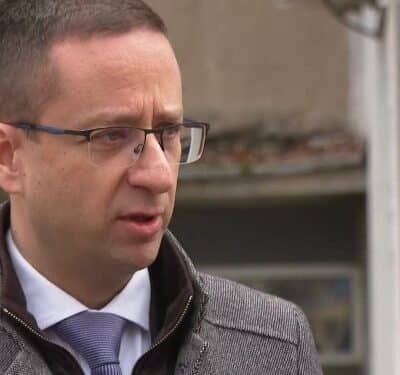KYIV – Russia’s full-scale invasion of Ukraine has shocked the democratic world, but even more shocking are the atrocities carried out near Kyiv, in Bucha, Hostomel and Borodyanka. Here, dead bodies lay in the streets for days and a mass grave was discovered with more than 300 dead civilians, including children.
The situation is similar in eastern Ukrainian cities. Every day, authorities report crimes against civilians, as well as violations of international humanitarian law. The number of casualties grows larger and larger due to constant shelling and brutal combat in the occupied areas. Right now, one of the biggest problems is the fate of survivors.
The public prosecutor is investigating cases of rape, torture, hostage taking, and forcibly displaced people and orphaned children on Russian territory. The Russian policy to instantly give citizenship to orphans remains the hardest issue of all. Once the children are taken to Russian territory and given Russian papers, it becomes practically impossible to locate them and prove their true home is Ukraine.
Besides this, according to Ukrainian officials, Russians are torturing captured Ukrainian soldiers. The attempt to prove this, with the help of the International Committee of the Red Cross, has been in vain because Russia refuses to allow visits or show the conditions in which soldiers are being held.
At the moment, Ukrainian officials are working to use international law tools to visit and save these prisoners of war. For that purpose, they are inviting and briefing foreign officials about the current situation. Many foreign officials have visited Ukraine since the war began on February 24. One of them is Jovan Andonovski, North Macedonia’s Deputy Ombudsman.
After briefings with Ukraine’s ombudsman and prosecution offices, Andonovski came up with the idea to form an international ombudsman group to enter the places where prisoners of war are held. Andonovski proposed this to Ukraine Deputy Justice Minister Irina Mudra, whose first reaction was positive. But she posed the question: how can they be sure the Russians will accept this group, knowing that so far they have not granted access to the Red Cross?
Andonovski said no one can guarantee Russia will accept the proposal. But if there is an ombudsman from a country it trusts, such as Serbia, Russia will need a very good legal excuse to block the group from visiting the captured soldiers. Andonovski offered himself to be part of the group, stating ombudsmen in every country have the legal right to enter places where there are indications of violation of human rights.
Mudra said she will present the proposal to the government because Ukraine now needs international help more than ever in order to save its people. Of course, this remains to be accepted by and carried out by the Ukrainian government.




